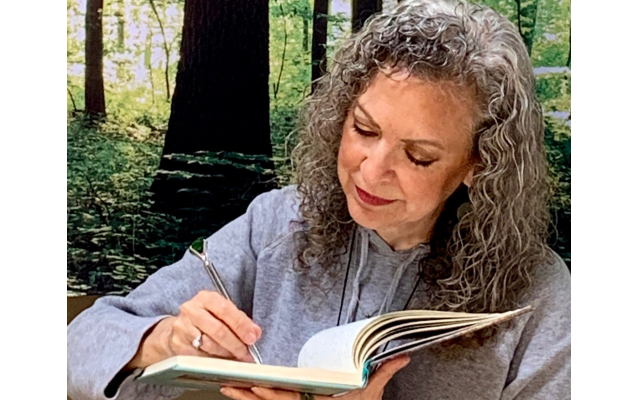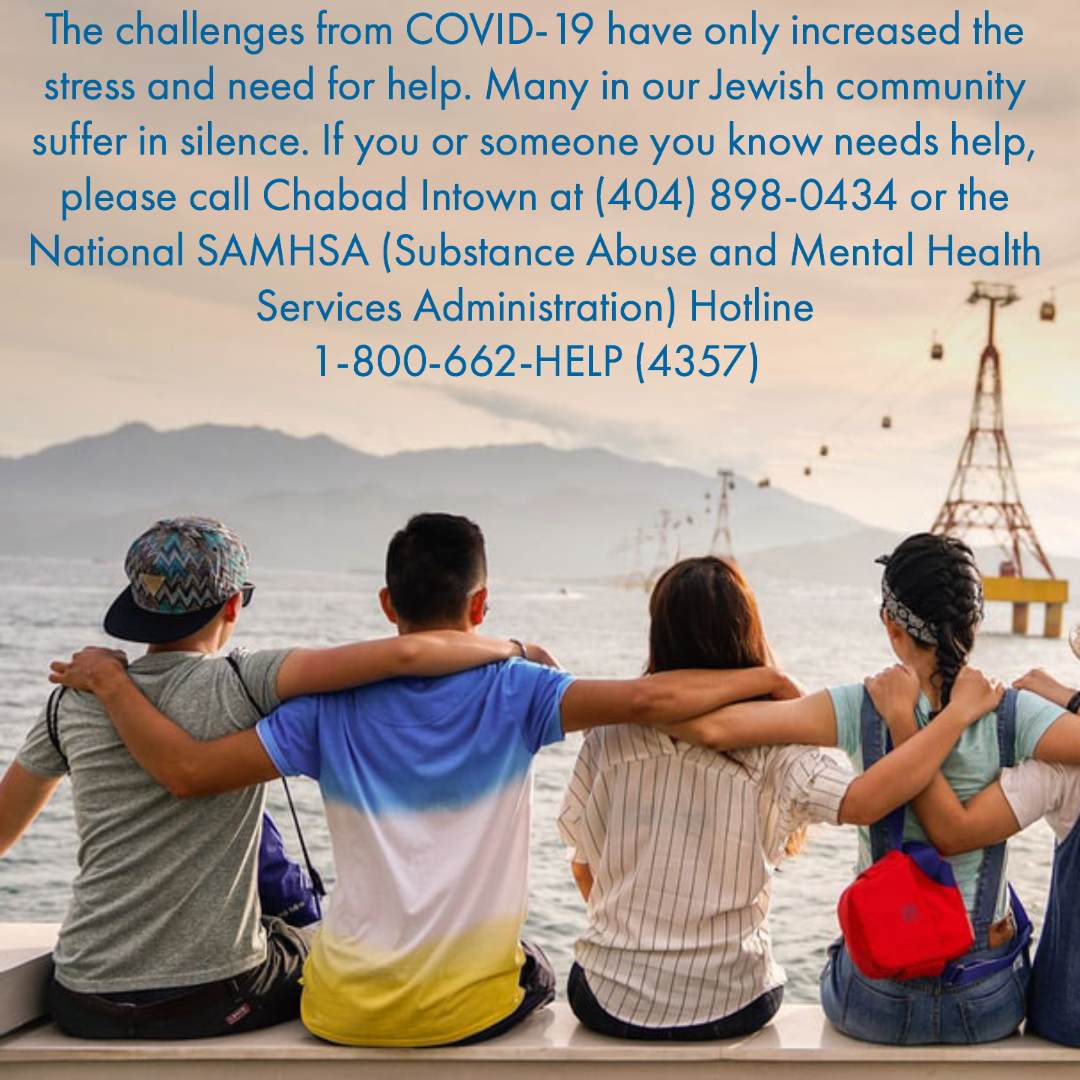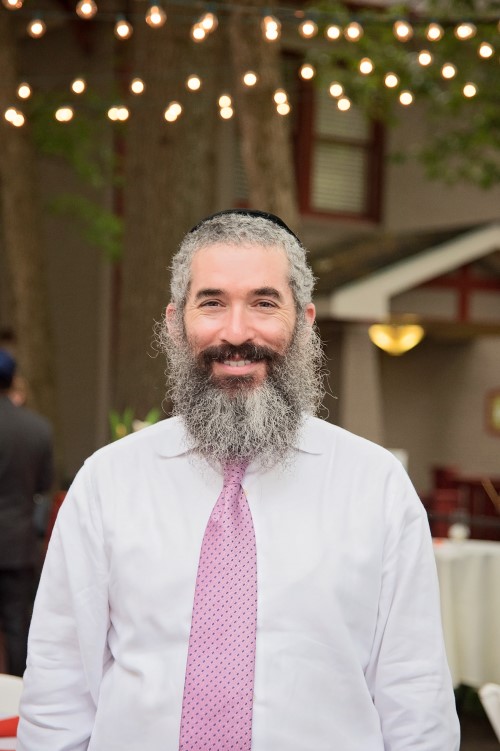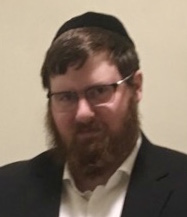Jeff’s Place Offers Hope, Recovery, Healing
Chabad Intown offers a community space for people suffering from addiction so they don’t have to struggle alone and discusses The Twelve Steps through a Jewish lens.

Jeff’s Place, created by Rabbi Eliyahu Schusterman and Chabad Intown, hosts an addiction recovery group that’s in its second year. Focused on outreach, Schusterman addresses a need in the Jewish community with Jeff’s Place, promoting the message of hope and recovery and the concept that people suffering from addiction don’t have to struggle alone.
Currently, meetings, classes, and events take place through the Zoom video conferencing app. With support from the Clinton Foundation, Schusterman, along with other rabbis and interfaith leaders, address the opioid crisis in the community.
Prior to COVID-19, training was also offered so loved ones of addicts could learn to administer Narcan, the nasal mist medication that rapidly reverses heroin or opioid overdose, restoring normal respiration to people whose breathing has slowed or stopped. Schusterman shared the heartbreaking yet hope-filled story about Jeff’s Place. It honors the memory of Jeffrey (Moishe) Kraus, an active member of the Chabad community who lost his life to addiction. “Jeff had a thirst for Judaism, a great sense of easy humor, and a sense of peace in his journey of connection to G-d, Torah and community,” the rabbi said.
Schusterman shared the heartbreaking yet hope-filled story about Jeff’s Place. It honors the memory of Jeffrey (Moishe) Kraus, an active member of the Chabad community who lost his life to addiction. “Jeff had a thirst for Judaism, a great sense of easy humor, and a sense of peace in his journey of connection to G-d, Torah and community,” the rabbi said.
No one knew that Kraus, a Georgia State University English and history student, was an addict in recovery when he showed up to Chabad in 2017. He went from a limited Jewish background to embracing Judaism, became shomer Shabbos, keeping kosher, and was a regular at services and young adult events. His secret wasn’t revealed until November 2018 when he didn’t show up to a Shabbat service. He was later found lifeless in his apartment, having relapsed and died from a drug overdose.
Schusterman learned from Kraus’ family that he had struggled with addiction for 14 years, coming to Atlanta for treatment and to complete college. One of the program requirements was to attend a house of worship weekly.
“Jeff found his religious and spiritual home at Chabad, but kept his recovery community in a different world,” Schusterman said. Chabad was moving into a new building and, with support from Kraus’ parents, Jon and Veronica, Jeff’s Place became a space focused on recovery and a place for weekly Alcoholics Anonymous meetings.
AA was founded in 1935 by Bill Wilson and his physician, Dr. Bob Smith. The philosophy and methods became known as The Twelve Steps of recovery.
Offshoots of the program developed. The concept of G-d was through a Christian lens. For those who had negative associations with G-d, “Higher Power,” was used to reference an external force greater than the self.
This was the preferred term I was trained to use in providing counseling and facilitating addiction groups at Tarzana Treatment Center in California. Since then, some groups using the word, “G-d,” have chosen not to use a gender-specific pronoun and simply refer to G-d as G-d, rather than He or She.
The intention of Jeff’s Place is to offer Jews struggling with addiction a place for recovery and community in a Jewish setting. Schusterman said, “There’s liberation in stating, ‘I’m an addict,’ whether to drugs, alcohol, sex, … It’s a place to process embracing G-d as G-d.” Non-Jews are also welcome.
Trying to fully understand the experience as a non-addict, Schusterman studies “The Big Book,” a nickname for “Alcoholics Anonymous: The Story of How Many Thousands of Men and Women Have Recovered from Alcoholism.”
Schusterman explained, “There are parallels in Chabad’s book of Tanya, which is the primary book on the journey I grew up with.” The original self-help book, “Lessons in Tanya,” was written by Rabbi Schneur Zalman of Liadi in the Russian Empire and includes Torah, Talmud, and kabbalah in an intellectual approach to spiritual transformation.
Schusterman also teaches a weekly Torah class in which the focus is on one of The Twelve Steps. “There’s a profound spiritual yearning that addicted people have. They don’t find peace in the substances they seek. It’s in surrender to the Higher Power and is the key to being at peace with oneself.”
I attended the class on step 6, regarding G-d removing shortcomings. It offered a profound universal lesson on being in partnership with G-d as we struggle with our imperfect selves.
In addition, I had the opportunity to present “10 Keys to Nourish Mind, Body & Soul” at the weekly Lunch and Learn. When I asked the group what fire-breathing dragons were chasing them, their answers included: isolation, loneliness, fear of the future, anxiety, financial concerns and exhaustion. These challenge people’s sobriety. ì ì
Dr. Terry Segal is a licensed marriage and family therapist with a doctorate in energy medicine. She is the author of “The Enchanted Journey: Finding the Key That Unlocks You.”
The Twelve Steps of Alcoholics Anonymous
1. We admitted we were powerless over alcohol — that our lives had become unmanageable.
2. Came to believe that a Power greater than ourselves could restore us to sanity.
3. Made a decision to turn our will and our lives over to the care of God as we understood Him.
4. Made a searching and fearless moral inventory of ourselves.
5. Admitted to God, to ourselves, and to another human being the exact nature of our wrongs.
6. Were entirely ready to have God remove all these defects of character.
7. Humbly asked Him to remove our shortcomings.
8. Made a list of all persons we had harmed, and became willing to make amends to them all.
9. Made direct amends to such people wherever possible, except when to do so would injure them or others.
10. Continued to take personal inventory and when we were wrong promptly admitted it.
11. Sought through prayer and meditation to improve our conscious contact with God, as we understood Him, praying only for knowledge of His will for us and the power to carry that out.
12. Having had a spiritual awakening as the result of these steps, we tried to carry this message to alcoholics, (drug addicts/compulsive overeaters/compulsive gamblers, etc.) and to practice these principles in all our affairs.
- Rabbi Eliyahu Schusterman
- Chabad Intown
- Jeff's Place
- Clinton Foundation
- COVID-19
- narcan
- Substance Abuse and Mental Health Services Administration
- SAMHSA
- Jeffrey (Moishe) Kraus
- Georgia state university
- Alcoholics Anonymous
- Bill Wilson
- Dr. Bob Smith
- The Twelve Steps
- Tarzana Treatment Center
- Lessons in Tanya
- Rabbi Schneur Zalman





comments